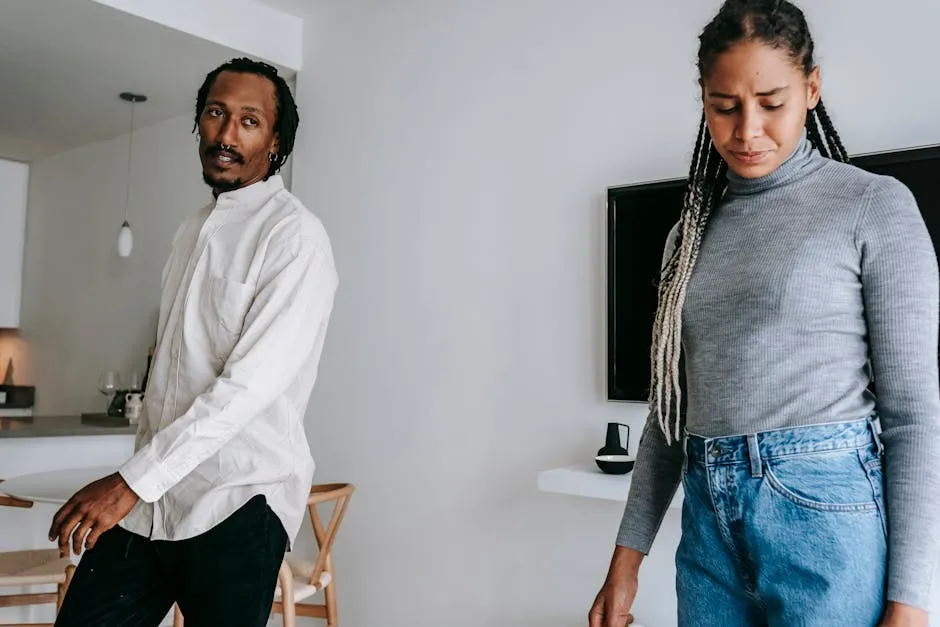
Why Does Bro Code Valorizes Men in a Bad Way
Introduction
The “Bro Code” is often seen as a lighthearted set of unwritten rules guiding male friendships. However, beneath its surface lies a complex web of social dynamics that can negatively impact not only men but also their relationships with women. This article delves into the implications of the Bro Code and why its valorization of men can contribute to harmful behaviors and attitudes.
If you’re looking to improve your social skills and relationships, consider picking up “Men Are from Mars, Women Are from Venus” by John Gray. This classic book provides insights into the differences between genders and how to navigate relationships with more empathy and understanding.
Overview
The Bro Code has become a defining characteristic of male camaraderie, emphasizing loyalty, brotherhood, and a set of rules that dictate interactions among men. While these principles may foster a sense of solidarity, they also reinforce toxic masculinity, promote misogyny, and create a culture of silence around inappropriate behavior. This article will explore the historical context of the Bro Code, its impact on gender dynamics, and the necessity for change in how men interact with each other and with women.
Speaking of understanding dynamics, why not check out “The Mask of Masculinity” by Lewis Howes? It digs deep into the façades men often wear and encourages vulnerability—something the Bro Code desperately needs!
Foundations of Bro Code
Historical Context
The Bro Code has its roots in traditional male bonding practices. Historically, men formed tight-knit communities that prioritized solidarity and mutual support. This can be traced back to various cultural practices and societal expectations that favor male friendships. The media and pop culture have played significant roles in shaping perceptions of the Bro Code. For instance, movies and TV shows often depict male friendships as sacred, reinforcing the idea that loyalty among men should trump all else.

Statistics show that male socialization tends to emphasize competition and dominance. Young boys are often taught to prioritize relationships with other boys and to dismiss the importance of emotional connections with girls. This socialization process instills a sense of entitlement among men, leading to the valorization of behaviors that can be damaging to both men and women. As a result, the Bro Code becomes a blueprint for navigating male relationships, often at the expense of healthy interactions with women.
By examining these historical contexts, we better understand how the Bro Code evolved. It serves as both a shield and a sword for men, protecting their interests while simultaneously perpetuating harmful stereotypes. Understanding its roots is crucial in recognizing the need for change.
Social Dynamics
Within many social circles, the Bro Code serves as a framework that reinforces male privilege and dominance. It often promotes the idea that men should prioritize their friendships over romantic relationships, leading to a hierarchy that values male relationships above others. This hierarchy can leave women feeling sidelined or disrespected, as if their voices and needs are secondary to the needs of men.

The Bro Code also creates an environment where emotional vulnerability is discouraged. Men feel pressured to maintain a tough exterior, which can stifle genuine emotional expression. This often results in men isolating themselves from their emotions and failing to develop healthy relationships with both their friends and romantic partners. The pressure to conform to these expectations is immense, leading many men to internalize harmful beliefs about masculinity.
Ultimately, the valorization of male camaraderie through the Bro Code fosters an atmosphere that normalizes toxic behavior. This culture can lead to serious consequences, not just for women but for men as well, who may struggle with their mental health due to the unrealistic expectations placed upon them. Addressing these social dynamics is essential to creating a more equitable society where everyone can thrive.
The Valorization of Men
Loyalty and Brotherhood
The Bro Code often emphasizes loyalty among men, suggesting that a man should always support his friends. This creates a sense of belonging and identity that can be comforting but also exclusionary to those outside the male circle. Loyalty is viewed as a virtue, but it can morph into an unhealthy form of blind allegiance.

This loyalty can lead to the exclusion of women and non-bros, who might feel they lack a voice in male-dominated spaces. The phrase “bros before hoes” encapsulates this mentality, reducing women to mere afterthoughts in the context of male friendships. Such attitudes not only disrespect women but also undermine the emotional well-being of men by preventing them from forming meaningful connections with women.
Moreover, this emphasis on loyalty can lead to a lack of accountability. Men may feel compelled to overlook or excuse bad behavior from their peers to avoid rocking the boat. This culture of silence can perpetuate cycles of disrespect and harm, making it crucial to redefine what loyalty means in modern friendship dynamics.
Gender Expectations
By valorizing male relationships, the Bro Code perpetuates traditional gender roles. Men are often expected to behave in certain ways—stoic, competitive, and emotionally reserved—leading to a narrow definition of masculinity. This pressure to conform can have debilitating effects on men’s mental health, pushing them to suppress emotions rather than express them.

Expert opinions highlight the psychological impact of these expectations. Surveys indicate that many men struggle with emotional expression due to fear of being perceived as weak. Such stereotypes can isolate men, making them feel they have to choose between authenticity and acceptance within their social circles.
Challenging these outdated notions of masculinity is vital for fostering healthier relationships. By encouraging emotional openness and vulnerability, men can break free from the constraints of the Bro Code and build more meaningful connections with others.
Impact on Relationships
While fostering strong friendships, the Bro Code can negatively affect romantic relationships. The expectation to prioritize male friendships can lead to misunderstandings and conflicts with female partners, contributing to a culture of disrespect towards women.

Real-life examples illustrate how the Bro Code can create rifts in relationships. Many women report feeling sidelined or disrespected by their male partners, who often prioritize their friendships over their romantic commitments. This imbalance can lead to feelings of resentment and a breakdown in communication.
The consequences of the Bro Code extend beyond individual relationships. They contribute to a broader societal culture that normalizes disrespect and objectification of women. By understanding these dynamics, men can begin to challenge the Bro Code’s influence in their lives and foster healthier, more equitable relationships with women.
The Path to Change
Redefining Brotherhood
Men can redefine brotherhood to include respect and empathy. It’s time to shift from traditional views that prioritize loyalty above all else. This evolution can lead to healthier, more inclusive relationships. So, how do we break the cycle of the Bro Code?

First, start by fostering open communication. Encourage friends to share their thoughts and feelings without fear of judgment. This creates a supportive environment where vulnerability is celebrated, not shamed. When men openly discuss their emotions, it challenges the notion that they must always be tough.
Second, lead by example. Positive male role models can inspire change. Think of figures like Mr. Rogers or Dwayne “The Rock” Johnson. Both embody kindness, respect, and empathy. They show that being a man doesn’t mean sacrificing emotional depth. By showcasing these traits, men can redefine what it means to be a brother.
Third, engage in community service. Working together for a cause can strengthen bonds while promoting values of empathy and respect. Whether volunteering at a local shelter or participating in community clean-ups, these experiences can reshape perspectives on masculinity.
Lastly, commit to accountability. Encourage friends to hold each other responsible for their actions. If a buddy makes an inappropriate joke, speak up. This creates a culture of respect where everyone is encouraged to do better.

By redefining brotherhood through these practical steps, men can break free from the constraints of the Bro Code. It’s about building connections that uplift everyone involved, creating a network grounded in respect and empathy. When men embrace this shift, they pave the way for more meaningful relationships, both with peers and romantic partners.
Encouraging Accountability
Accountability among men is crucial for fostering a culture of respect. When men support each other in challenging toxic behaviors, they can help dismantle harmful patterns. So, how can this be achieved?

Start by fostering an environment where honesty reigns. Encourage friends to voice concerns when they witness unacceptable behavior. Simple phrases like “That’s not cool” can be powerful. This creates a ripple effect, encouraging others to speak up as well.
Next, make it a point to check in on each other. Regular conversations about feelings and actions can build trust and openness. When men feel comfortable discussing their experiences, they are more likely to hold each other accountable.
Additionally, set boundaries. If a friend engages in disrespectful behavior, make it clear that such actions are unacceptable. This not only protects others but also reinforces the importance of integrity within friendships.
Offer support when friends seek to change. If someone is trying to alter their behavior, be their cheerleader. Encouragement can go a long way in fostering a culture of respect.
Lastly, lead by example. Demonstrate accountability in your own actions. When men see their peers prioritizing respect and integrity, it creates a standard for everyone to follow.

By actively encouraging accountability, men can challenge toxic behaviors and foster healthier relationships. This shift not only enhances individual friendships but also contributes to a broader culture of respect. A commitment to accountability among men can lead to lasting change, creating a more equitable environment for everyone.
FAQs
What is the Bro Code?
The Bro Code refers to an unwritten set of rules guiding male friendships. It emphasizes loyalty, camaraderie, and mutual support among men. This code has cultural significance, often celebrated in movies and media, portraying male friendships as sacrosanct. However, beneath this lighthearted facade lies a reinforcement of toxic masculinity, sidelining women’s voices and needs. The Bro Code can create a protective bubble for men, fostering a sense of superiority and entitlement. This notion of “bros before hoes” encapsulates its spirit, often at the expense of healthy relationships with women.
How does the Bro Code affect relationships?
The Bro Code can greatly impact romantic relationships and friendships. When men prioritize their friendships over their partners, it creates tension. Many women report feelings of neglect or disrespect when their partners adhere to the code strictly. This can lead to misunderstandings, as men may dismiss their partner’s feelings in favor of loyalty to their bros. Friendships can become exclusive, sidelining female perspectives and experiences. This prioritization often results in emotional distance between partners, complicating communication and fostering resentment.
What are the dangers of adhering to Bro Code?
Blindly following the Bro Code can have serious consequences. It encourages a culture of silence around inappropriate behavior, enabling toxic actions among men. This code promotes misogyny, often minimizing women’s needs and experiences. Men may feel pressured to overlook harmful behaviors in peers to maintain loyalty, leading to an unhealthy cycle of complicity. Additionally, the emphasis on stoicism and competition can harm men’s mental health, leaving them feeling isolated and emotionally stunted. This culture can also normalize behaviors that contribute to sexual harassment and assault, perpetuating a cycle of harm.
How can men challenge the Bro Code?
Men can take several actionable steps to challenge the Bro Code. First, they should encourage open conversations about feelings and experiences within their friend circles. Speaking out against inappropriate behavior is crucial; simple statements like “that’s not cool” can create ripples of change. Second, men should prioritize emotional vulnerability, showing that it’s okay to express feelings. Additionally, they can practice accountability by calling out harmful behaviors among friends. Supporting women and respecting their voices is also essential in breaking down the barriers the Bro Code creates.
Why is it important to redefine masculinity?
Redefining masculinity is vital for fostering healthier relationships and societal norms. Traditional masculinity often promotes aggression, stoicism, and emotional suppression, which can have detrimental effects on men’s mental health. By embracing a more inclusive definition of masculinity, men can learn to express vulnerability and empathy. This shift not only benefits men but also leads to more respectful and equitable interactions with women. Encouraging open dialogue about emotions and relationships can create a culture where all individuals feel valued and understood, contributing to a more harmonious society.
If you’re looking for a fresh perspective on vulnerability, check out “Daring Greatly” by Brené Brown. It’s a fantastic resource that encourages men to embrace their vulnerabilities instead of hiding behind the Bro Code.
Please let us know what you think about our content by leaving a comment down below!
Thank you for reading till here 🙂
Understanding emotional responses is crucial for mental health, especially in the context of male relationships and the Bro Code. why understanding emotional responses is crucial for mental health
All images from Pexels




